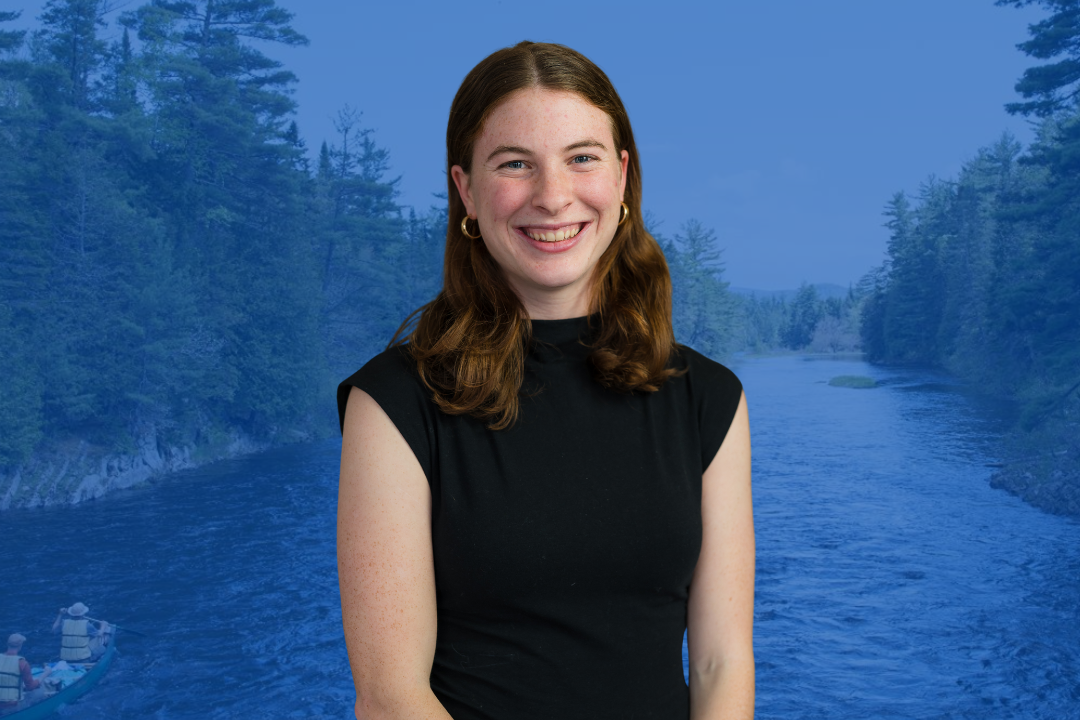
Climate Q&A: Colby Environmental Policy Senior Lucy Robinson
Lucy Robinson a senior at Colby College, is studying environmental policy and history and conducting research among Maine college students about experiencing climate anxiety, a leading topic from the recent report on climate effects in Maine by the Maine Climate Council's Scientific and Technical Subcommittee. Read the full report or its executive summary.
Q: Tell us about yourself and how you got into your work.
I grew up in Arlington, Virginoa, and volunteered at a community garden with my mom. That was my first experience in the outdoors – for my high school senior capstone, I created a seed inventory so people in my community could plant their own vegetables. I loved giving produce to the local food pantry, and seeing how I could feasibly make an impact.
I really wanted to go to a small liberal arts school in New England, which is how I found myself at Colby College. Colby is really connected to the environment: walk two steps out of a building and you’re in the woods. Learning about climate change and environmental policy with the space to connect with nature has been really impactful.
Q: What is the current project you’re working on at Colby?
One of my professors at Colby, Dr. Gail Carlson, is really focused on public health; she’s on the Community Resilience Working Group of the Maine Climate Council. Conversations around climate anxiety hadn’t really been a prominent topic in her group, and she wanted to conduct some research to better ground the problem. How can we bridge the gap between experiences of climate anxiety in young adults, in particular, to policy solutions? This is a question we want to answer, with the goal of recommending solutions to colleges on how to better support their students.
So, we designed a survey to understand how college students experience climate anxiety and fatigue. What does climate anxiety do to a person: make you more likely to take action, like recycling or protesting? Or, is it hindering your ability to make a change? We distributed the survey here at Colby and at the University of Maine in Orono, Bates, Bowdoin, and Thomas colleges.
Q: What did you find? Did any results surprise you?
Our preliminary results show that 45% of respondents cite that they experience climate anxiety, but 63% of respondents have taken action to address climate change. 68% say more needs to be done for youth mental health support, too.
A full 98% of the survey participants said they believed climate change was occurring. That was really good to hear and to know that young people have established this in their understanding of the environment. Also, 68% of respondents said that more needs to be done to support mental health impacts – that was really impactful. Are the resources there for youth? Are therapists able to talk about this?
Q: What would tell a student who might want to conduct a similar project at their university?
Go for it. We’re lacking in this data. My study alone won’t give us all the answers. We need to bolster youth voices in Maine and beyond; we’re the voice of the future and the generation that will have to deal with this. How we feel about this as young adults is so important for community care and resilience. Figuring out how we can better support each other will only suit us better for the future. Climate change solutions are more than mitigating damage; it’s taking care of yourself, and understanding how the changing environment impacts your mental health and wellbeing. These are universal feelings.
Q: How do you feel you’ve grown as a student and researcher through this project?
I’ve learned a lot about research: I loved being a researcher. Engaging with qualitative and quantitative data has been so rewarding. In the long haul, I really hope to be in a space that supports youth voices – I’d love to stay working in climate change and policy. I want to do work that matters. It feels good to be working on something people care about.